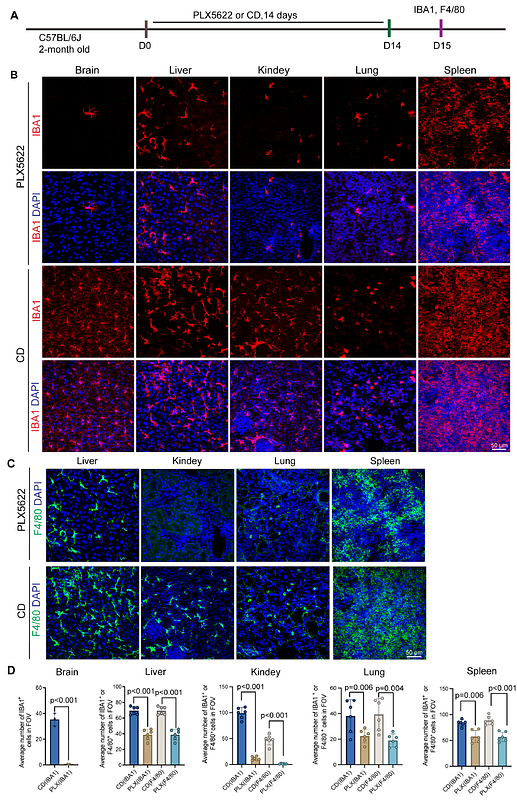Evaluate the efficiency of Mr BMT in macrophage replacement of peripheral organs

Evaluate the efficiency of Mr BMT in macrophage replacement of peripheral organs
Du, J.; Yang, B.; He, Y.; Rao, Y.
AbstractThe successful replacement of endogenous tissue-resident macrophages with healthy bone marrow-derived cells through transplantation presents a promising therapeutic approach for treating disease associated with macrophage dysfunction. Our previous development of the novel microglia replacement by bone marrow transplantation (Mr BMT) method achieved high engraftment efficiency in the central nervous system (CNS), overcoming the limitation of traditional bone marrow transplantation (tBMT). In this study, we aimed to investigate the potential impacts of mrBMT approach on peripheral organs. The Mr BMT approach involves depleting resident microglia through colony stimulating factor-1 receptor (CSF-1R) inhibition, so we first evaluated the survival of peripheral macrophages after CSF-1R inhibition. We observed that the CSF-1R antagonist, PLX5622, exerted significant elimination of peripheral tissue macrophages, albeit with lower efficiency than in the CNS. Furthermore, we discovered that Mr BMT achieved replacement efficiencies comparable to tBMT in peripheral tissues such as the liver, kidney, lung, and spleen. Our findings suggested Mr BMT is a highly efficient strategy for allogeneic macrophage replacement in both the CNS and peripheral organs, and it could have potential clinical applications.


